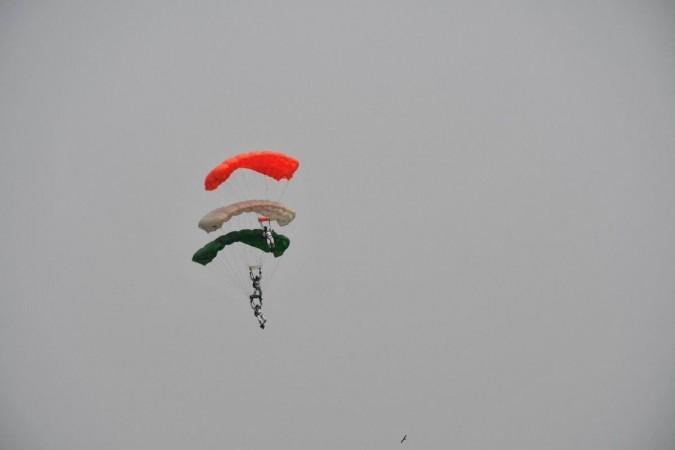
India, a nation known for its rich history and diverse culture, is now making its mark on the global defence industrial landscape. The country's defence production has seen a significant surge, reaching Rs 1.27 lakh crore in the fiscal year 2023-24. This growth is not confined to domestic production alone; exports have also seen a remarkable increase, soaring from Rs 1,000 crore to Rs 21,000 crore. This expansion in defence exports spans across more than 90 nations, further bolstering India's 'Make in India' programme and its pursuit of 'Atmanirbharta' or self-reliance in the defence sector.
The 'Make in India' programme, introduced under the astute leadership of Prime Minister Narendra Modi, was envisioned with the aim of making India self-reliant across various sectors. A decade since its inception, the programme has brought about numerous reforms, particularly in the defence sector. As stated by Defence Minister Rajnath Singh, India is rising on the defence industrial landscape of the world. The Indian Armed Forces are now equipped with weapons and platforms manufactured on Indian soil. This domestic production not only serves the country's defence needs but also caters to the requirements of over 90 friendly foreign nations. In a recent social media post, Defence Minister Rajnath Singh shared that India is exporting defence items to these countries, further emphasizing the country's growing self-reliance.
In a bid to foster international collaboration, Rajnath Singh extended an invitation to US defence companies last month. He asserted that by working together, India and the US could co-develop and co-produce for the world. This move is indicative of India's continuous stride towards self-reliance in manufacturing weapons, cannons, tanks, fighter ships, helicopters, missile systems, and more for the armed forces. The Union Budget for 2024-25 has allocated Rs 6.22 lakh crore for the Ministry of Defence, the highest allocation among all ministries. This allocation underscores the government's commitment to strengthening national defence and making the forces more capable and self-reliant. Over the past decade, around Rs 6 lakh crore worth of defence equipment has been procured from Indian companies, effectively doubling the country's defence production.

According to reports, India's defence export is estimated to grow at an 18 per cent compound annual growth rate (CAGR) from FY24-FY30. This growth is driven by the 'Make in India' initiative and the emphasis on local manufacturing. Global investment firm Jefferies noted that the government is also building bilateral relations to promote exports in the global market. Between FY24 to FY30, the potential market opportunity for Indian defence companies is expected to rise at a 14 per cent CAGR. Defence companies are expected to get opportunities worth $90 billion to $100 billion in the Indian market in the next 5 to 6 years. In 2022, India's defence expenditure was 10 per cent of the US expenditure and 27 percent of China's expenditure. This data highlights the significant strides India has made in its defence sector.
Looking back at history, India's journey towards self-reliance in defence production has been a steady one. The country's defence sector has evolved from being a mere buyer to becoming a manufacturer and exporter. This transformation is reminiscent of the Swadeshi Movement during the British Raj, where the emphasis was on self-sufficiency and the use of Indian-made goods. Today, the 'Make in India' initiative echoes the same sentiment, albeit in a different sector and era.
In conclusion, India's rise on the defence industrial landscape is a testament to the country's relentless pursuit of self-reliance. The 'Make in India' programme, coupled with the government's strategic initiatives and budget allocations, has significantly bolstered India's defence production and exports. As India continues to make strides in this sector, it is poised to become a key player in the global defence industry. The country's journey towards self-reliance in defence production is a testament to its commitment to national security and its growing global presence.

















